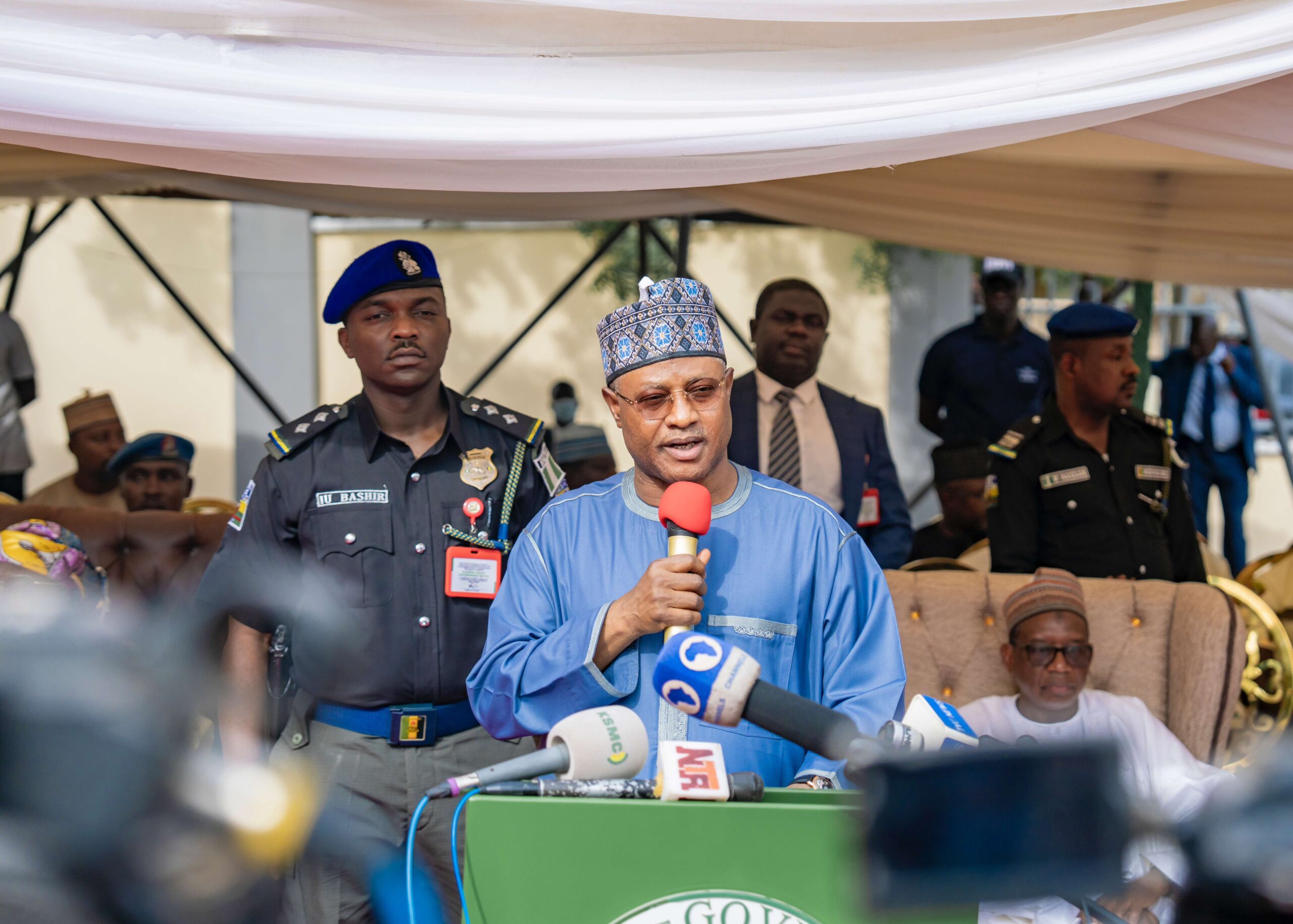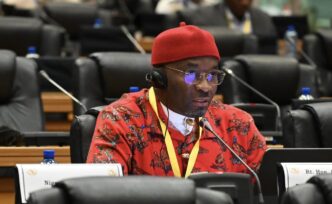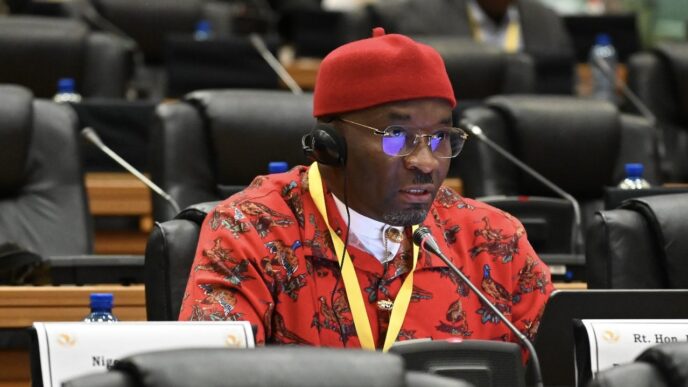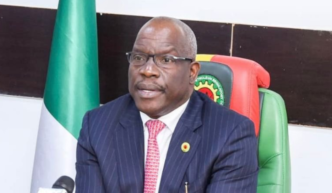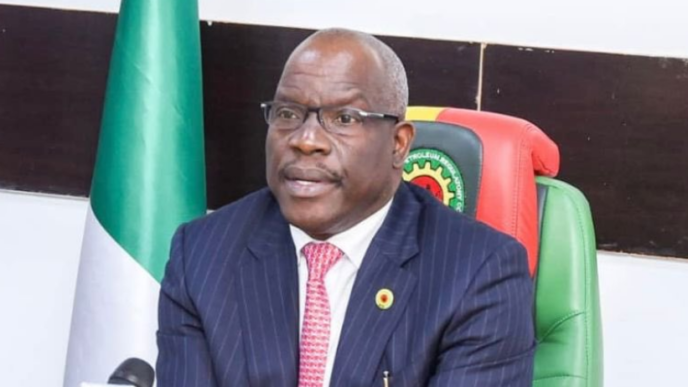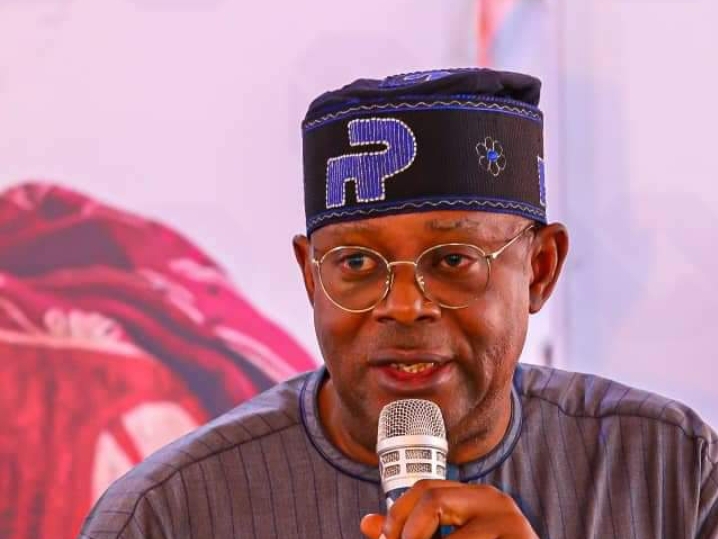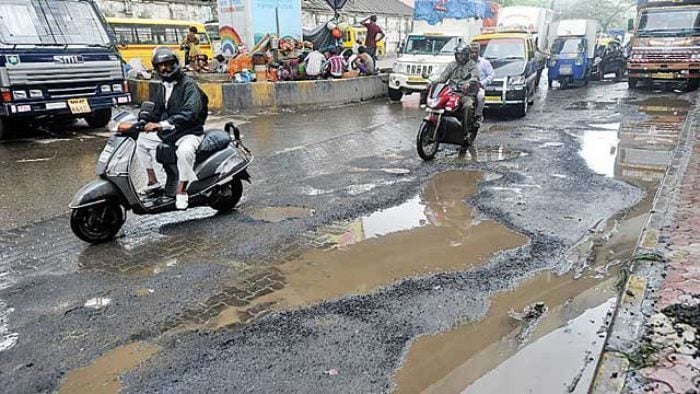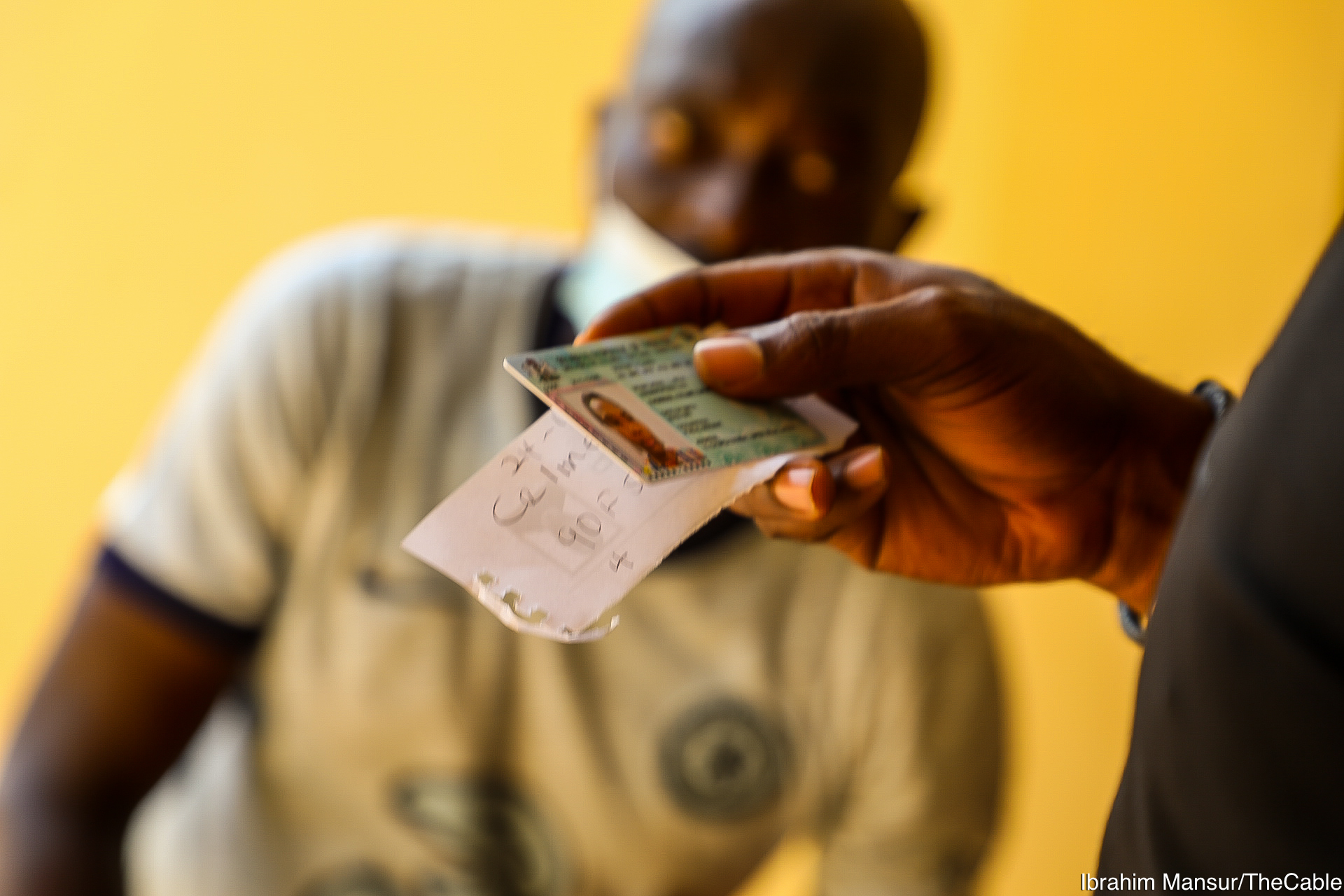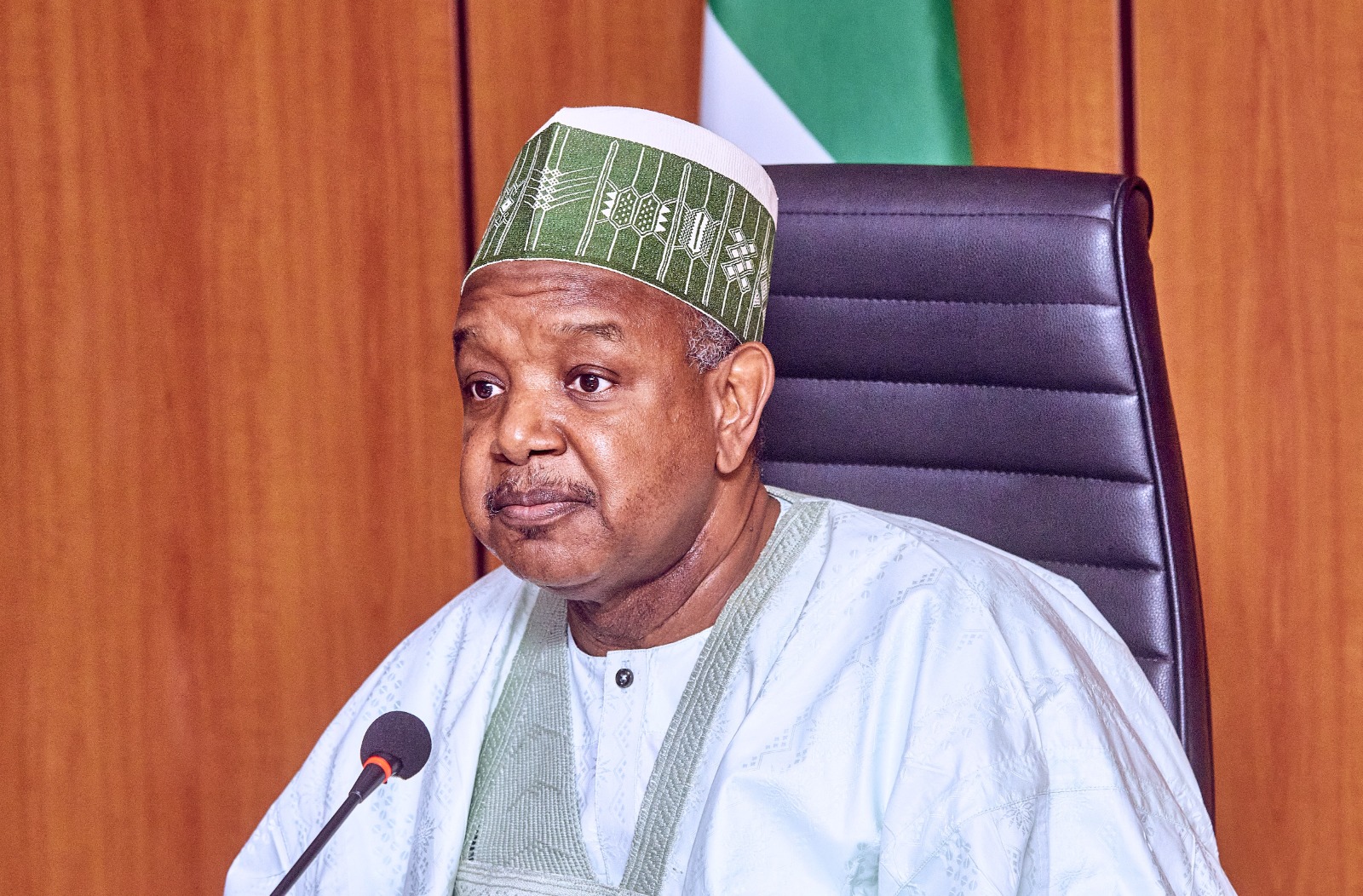BY MANSUR UMAR
Recently, Governor Uba Sani made out time from his very busy schedule to speak very passionately and frankly about the essence of his unique resort to very little or no partisan politics in the administration of the very complex Kaduna State. In an exclusive interview with Trust TV’s Mannir Dan Ali, Senator Uba Sani concedes that his inclusive governance style in Kaduna State, is not a walk in the park, but avers that an alternative to this governance method, especially a reenactment of previous options that glaringly shortchanged some parts of the State, would be counter-productive and could very easily return the state to its long-forgotten dark era of strife, restiveness and arrested development.
By May 2023 when Senator Uba Sani assumed office as Governor, Kaduna was among the states topping the chart of the nation’s inglorious list of flash points. A mix of recurring cases of banditry, high-level kidnappings, ethno-religious tension and general criminality bedeviled the otherwise beautiful and endowed state. But long before he contested for the office of Governor, Senator Uba Sani, was well aware that Kaduna’s problems stemmed largely from divisiveness and class wars. He knew that unifying all segments of the state, at all costs would all too certainly heal all wounds, mend fences and in turn, pave the way for good governance that must necessarily factor-in even the minutest interests of the citizens in every nook and cranny of the 23 local government areas of the State, irrespective political, religious, ethnic and tribal persuasions. In spite of this tall order, almost two years after adopting this option, Governor Uba Sani has literally turned the entire Kaduna State to a single, large, happy and prosperous family that speak with a voice and act in one accord. Today Kaduna State has become a model state where good governance has outflanked politics – especially petty politics.
Having engendered the right atmosphere across the state, Governor Uba Sani has been devoting time, energy and huge resources to salvaging the state from the near-comatose condition he met it. In particular, deploying a deft combination of kinetic and non-kinetic options, Governor Uba Sani has reduced to the barest minimum, incidences of insecurity in the state. New and rehabilitated roads dot the state’s landscape; in-fact, first class roads are interlinking communities in the rural areas with urban centres and markets. In the same regards, healthcare and education are receiving unprecedented attention in all the Local Government Areas of Kaduna State under Governor Uba Sani.
“Given my background as a civil rights activist, I made it clear to everyone (from Day One) that we must relegate politics and focus on governance. I know it’s difficult, but I believe it’s the best approach — and we’ve seen the results,” Governor Uba Sani told Mannir Dan Ali, during the interview.
Advertisement
“When I assumed office, I made it clear that I wasn’t going to focus only on those who voted for me. I was going to focus on everyone. For instance, after the election, most of the people who voted for the PDP (and not the ruling APC) were from the southern part of Kaduna. But I had to sit down with my people from all parts of Kaduna, and I made it clear that we would take development to every part of the state — irrespective of religious, political, or party affiliations. Today, I’m happy. We’ve been able to achieve a lot, and that is why, as I speak with you, members of the PDP in the House of Representatives, who were elected on the platform of the PDP, have now defected to the APC,” he said.
Asked if he had ever considered his resolve to embrace, wholesale, persons who did not vote for him or his party, a political risk of sorts. Governor Uba Sani simply chuckled and replied that he will never regret any action he has taken, since assuming office, in the best interest of the State. Even then, he debunked the likelihood of the people who voted for him thinking or feeling that they are getting the wrong end of the stick. He said that those who voted for him are being well cared for and that the only difference is that his administration decided to let the dividends of democracy and good governance go round the state and for everyone to benefit.
“I can confidently tell you that those who voted for me and my party, the APC, are very happy because they are being taken care of. In the past, previous governments in Kaduna State focused only on areas that voted for them. But I told the people, look, when we took the oath of office, anyone who sits down and clearly understands the meaning of that oath will know it’s about carrying everyone along. Governance is for everyone. In fact, there are people who have nothing to do with politics — but as long as they live in Kaduna, as citizens of Kaduna, they must also be included and benefit from the basic provisions of governance. So it doesn’t matter whether you’re a politician, a businessman, a farmer, or someone who has no interest in politics — as long as you live in Kaduna, as a citizen of the state, you must be treated equally. At the end of the day, I will stand before Almighty Allah and account for what I did as Governor of Kaduna State,” Governor Uba Sani said.
Advertisement
Not a few persons are in agreement that Senator Uba Sani is somewhat incensed at the degeneration of Kaduna and most urban cities in northern Nigeria, especially in the last two decades. Apparently nostalgic about the good old Kaduna – the boisterous political, economic, agricultural, manufacturing and even social stronghold of northern Nigeria, Uba Sani is a hurry to keep hundreds of children off the streets and back to school, he is assiduously achieving the inclusion of the teeming numbers of underserved persons in rural and hard-to-reach communities in financial services; he is building a Bus Rapid Transit (BRT) system for Kaduna, the second of its kind in Nigeria’s after Lagos. He is also investing heavily to complete a rail line in the state. In short, Governor Uba Sani believes that Kaduna and a number of other major cities in the north deserve much more than past administrations have given them, especially in the crucial areas of education, infrastructure, health and social services.
Governor Uba Sani actually traces the security challenges in most states in northern Nigeria and the country at large, to years of unchecked poverty, unemployment, lack of social services and poor leadership or governance at practically all tiers.
“What are the factors that brought about the unfortunate state of affairs in most northern states? Hopelessness, lack of education and lack of economic prosperity. As at 2023, when we took office, over 85 percent of the people in the North West were either not educated or financially excluded,” Senator Uba Sani disclosed. “We are reversing this ugly trend”, he assured.
“I’ll say it here today — all of us who have held political power in the last 20 years must look at ourselves in the mirror and apologize to the people of Northern Nigeria. We let them down. I was a senator in this country, and the problems of Northern Nigeria didn’t start two years ago. We’re talking about developments—or lack thereof—over the past 20 years. I can give you the data and statistics. I chaired the Committee on Banking and Other Financial Institutions in the 9th Senate, so I know the poverty index of Northern Nigeria. I know how many people, as we speak, are financially excluded,” he offered.
“Don’t forget, when President Buhari was in office — people forget this — he spent hundreds of billions on social interventions. But I’ll tell you why the North became poorer even after that. Because 70% of the population in Northern Nigeria, especially the masses, were completely financially excluded because every human being; if you’re a former senator, a former member of the House of Representatives, a former governor, a former minister, or even a former vice president from Northern Nigeria in the last 20 years — you’re part of the problem. All of us,” the Kaduna State Governor opined.
Not surprisingly, a few politicians from the north have taken umbrage at this seemingly sweeping indictment of previous political office holders in the region. In particular, Senator Bala Ibn Na’Allah, from Kebbi State who served as a two-term member of the House of Representatives and a two-term member of the Senate, in statement said he did his best while he held public offices hence do not feel the need to apologize to anyone. “Upon reflection and a thorough review of my record in public office, I cannot identify any action, decision, or position taken by me that was injurious to the interests of the North. I therefore see no reason to offer an apology to Nigeria or to any part of it,” Senator Na’Allah said in the statement.
Advertisement
But Senator Bala Ibn Na’Allah misses the point. Clearly, Governor Uba Sani was not blaming individuals. In his normal blunt nature, he was merely speaking of failure of vision, collective effort, synergy and purposeful leadership, especially on the part of political office holders that held executive powers in northern Nigeria in the last two decades. Senator Uba Sani is unwavering in his belief that much more could have been done in the last twenty years and that this lack of purposeful leadership led to mass poverty; spiraled incidences of out-of-school children, lack of financial inclusion and criminal neglect of rural communities and persons who reside in them. It is the view of Senator Uba Sani that these factors cumulatively created the breeding ground for militancy, banditry and other forms of criminality in several cities and communities in northern Nigeria. Most persons do not think that Governor Uba Sani can be faulted on this score.
Governor Uba Sani gave thumps up to current generation of political leaders in the north, particularly when it comes to synergizing for the common good of all. He cited the example of the very cordial relationship between him and the Speaker of the House of Representatives. Indeed, he disclosed that Kaduna is now rapidly embarking on the completion of the several abandoned projects his administration inherited from previous the administration and paid resounding tribute to the Speaker of the House of Representatives for being of immense help in this regard.
“I want to take this opportunity to give a lot of credit to the Speaker of the House of Representatives, Right Honourable Tajudeen Abbas. If you go to Zaria now, all the previously abandoned projects are being worked on. In the last three months alone, we’ve returned four contractors to site. Mothercat Construction Company has gone back and completed most of the roads connecting Zaria and Sabon Gari. As for the overhead bridge, the Speaker himself — Right Honourable Tajudeen Abbas — came to my house and spoke to me. Don’t forget, I was a member of the Senate — the 9th Senate — and I know what it means to be a Speaker of the House of Representatives. That’s why we came together and agreed that Kaduna State needs someone in that position. Today, I’m happy to say he has secured substantial funding in the national budget to complete the overhead bridge,” the Governor revealed.
“And that’s what governance means — synergy. If you go around Kaduna State, we are working to complete the Kabala overhead bridge. We’ve also mobilised CCECC to complete the railway stretch from Rigasa station to Rabah Road Phase 2. That’s a major project, and it’ll cost us over N15 billion to complete. Don’t forget, most of these projects were abandoned when they were just 20% or 30% completed. The Kabala bridge was left at 30%, the Rigasa line at about 35%. But as we speak, we’ve mobilised the contractors and given them close to N20 billion to get them done,” he added
Advertisement
The chat afforded Governor Uba Sani to clarify a number of issues and decisions as well as offer updates on his administration’s other projects, policies and Programmes.
On education, the Governor disclosed that the State is already repositioning the entire education sector. “When I came in, go and verify — Kaduna State was number 12 in WAEC rankings. But today, we’re currently number 7 in the whole of Nigeria. And I can tell you, at the rate we’re going, we could be number 1 or 2 in the next year or two. The reason is clear. We’re investing heavily in teacher training and retraining. I’ve directed SUBEB and the local government chairmen — and I’m glad they’re receiving significant funding under our administration — to focus on recruiting more teachers.”
Advertisement
Similar attention is also being given to healthcare across the 23 Local Government Areas of the State. “When I assumed office, I made it clear that healthcare must never be a privilege. It is a fundamental right of the people of Kaduna State, particularly those at the grassroots. So what did we do? Today in Nigeria, we are the only state—let me say this clearly, without fear of contradiction—that has upgraded our primary healthcare centres from level one to level two, totalling 250. The next closest state has only managed to upgrade 100”
The Governor informed that in the upgraded healthcare centres, pregnant women easily walk into the hospitals and deliver safely, with all necessary facilities in place. Drugs are available and Healthcare personnel are present, according to the Governor.
Advertisement
“That’s why we moved those 250 centres from level one to level two. Following that, just last week, I directed the recruitment of 2,000 additional personnel for our primary healthcare centres. We’ve raised the bar. For our doctors, we now pay them the prevailing salary structure. Beyond primary healthcare, I also focus seriously on our secondary healthcare centres. I can’t, as governor, sit by and watch people travel to neighbouring states for treatment when they have serious illnesses.”
“We reviewed the status of our 32 secondary healthcare facilities, and found that in the past 18 years, over 25 of them hadn’t been upgraded. Because of that, we’re now upgrading at least 20. As we speak, 13 of them are being remodelled, reconstructed, and fully equipped. Due to these efforts, the Federal Ministry of Health has now agreed to convert the General Hospital in Kafanchan into a Federal Medical Centre,” Governor Uba Sani said.
Advertisement
The Uba Sani administration has also been busy deepening the gains made in the very critical security sector. “And let me be clear — the reason we’re succeeding in Kaduna isn’t rocket science. In the past, there was a serious trust deficit between the government, the communities, and the so-called bandits. But today, when we started the Kaduna model, I made it clear it wasn’t a government initiative. It was a community-based one. I sat down with traditional rulers, religious leaders — they initiated the process.”
“I spoke with the Emir of Birnin Gwari, who told me all the bandits in the area were born in his presence. He knew them, he knew their parents. I asked him: what are the real drivers of this insecurity? What are the underlying symptoms? You can’t address this issue solely through government action. You must address the lack of trust that built up over time. Thankfully, it was the community themselves who owned the initiative. When they approached me, I bought into the programme, improved it before I got the NSA involved,” the Governor said.
“Every day, we now have at least 25 to 30 trailers moving from Birnin Gwari to Lagos, transporting cattle. Economic activity has picked up. We reopened the grains market in Birnin Gwari, which has helped boost the area’s prosperity. The villagers, the rural dwellers, they’re now seeing business — they’re seeing life again. For me, that’s real progress. But it’s not something you can fully achieve in just six months, or even one year,” he added cautiously.
As a rule, Governor Uba Sani, is seldom distracted by the growing talk of the 2027 elections and a possibility of the candidate of another political party upstaging him in the polls.
“I think, for me in Kaduna, I can say frankly that I haven’t seen any major opposition. I’m a politician, and I want to be sincere. If there’s a problem, I’ll tell you. When I assumed office as governor, PDP had more members in the House of Representatives from Kaduna than the APC. Most of those PDP members represented constituencies in Northern and Southern Kaduna. But just last month, the member representing Igabi Local Government—which is one of the largest in Kaduna—Hussaini Jalo, left the PDP and joined the APC. We are doing governance for now; we are not doing politics yet, but I can assure you that we actually do not have opposition here,” Senator Uba Sani affirmed.
The Governor also boldly declared that he is not even nearly bothered by the political activities of his predecessor in Office, Mallam Nasir el-Rufa’i, who only recently left the APC to join the relatively unknown Social Democratic Party, SDP. “I am aware he is in another political party now. The truth is that no one knows that party, SDP, in Kaduna. But I wish him well. The more the political space is opened up, the merrier. I can tell you — as someone who has fought for the expansion of political space in Nigeria — don’t forget, I was among the few Nigerians who took INEC to the Supreme Court, with Chief Gani Fawehimi, Mallam Balarabe Musa and Alhaji M.D. Yusuf, all of blessed memory. I was part of that group. I support the opening up of the political space in the country,” Governor Uba Sani declared.
The Governor however said that for him and the good people of Kaduna State, partisan politics will come later as his administration is currently very busy retooling the state that was for years left decrepit by previous administrations. In Kaduna State, Under Senator Uba Sani, it is good governance first and partisan politics later.
Umar resides in Kurmin Mashi, Kaduna
Views expressed by contributors are strictly personal and not of TheCable.
